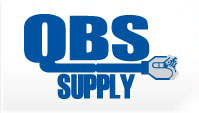Ongoing Projects
Kayan with its partners is designing a secondary manufacturing facility for a large waste management facility in Vietnam. The facility will be located in the Northern Province and specialize oil and gas waste streams. Currently the facility is in the fabrication process. The facility will be delivered in the month of September. The facility capabilities will be all Oil-Bearing Secondary Materials (OBSM’s).
OBSM Explanation
“The petroleum industry poses unique issues for resource conservation and recycling. The industry converts crude oil into a range of fuel products, in addition to lubricants and other feedstocks for petrochemical production. The refining process is highly diverse because crude oil from different origins requires highly customized treatments and because of the need to produce specially formulated fuels for different markets. EPA’s definition of solid waste (40 CFR 261.2) excludes secondary materials which are recycled as part of an ongoing manufacturing process, unless they are used to produce fuels. Consequently, EPA has found it necessary to develop a separate set of exemptions and exclusions for the refining industry, culminating in the 1998 exclusion for hazardous secondary materials. The 1998 exclusion is intended to facilitate in-process recycling of hazardous secondary materials from petroleum refining, also known as “oil-bearing secondary materials.”32
Rule 40 CFR 261.4(a)(12), promulgated on August 6, 1998, excludes from the definition of solid waste all oil-bearing secondary materials generated in petroleum refining when inserted in a normal refinery process as feedstock, so long as these materials are not placed on the land or speculatively accumulated. When these materials are excluded from the definition of solid waste, they are not subject to regulation under RCRA, including hazardous waste management requirements under subtitle C of that statute. In contrast, EPA retains RCRA jurisdiction over materials that are “exempt” and may still impose certain requirements on their management. Throughout this report, “excluded” is used as short-hand for the phrase “excluded from the definition of solid waste.”
As a result of this exclusion, refineries with suitable process units, including petroleum cokers or thermal desorber, can recycle oil-bearing secondary materials into these units (“in-process recycling”) without managing the materials as hazardous wastes in the interim. The 1998 OBSM exclusion also applies to oil-bearing secondary materials that are shipped between refineries for in-process recycling. With the regulatory barrier to off-site refineries removed, facilities without cokers, thermal desorber, or other suitable process units can send their secondary materials to another refinery instead of sending them off-site for treatment, disposal, or out-of-process recycling.”


KAYAN has been awarded a contract to utilize mechanical separation combined with indirect thermal remediation to assist Global Environmental Management with their current waste management operations. The project began in 2016 with bench scale testing and principle hazardous component recognition. After all the facts were discovered KAYAN and GEMS worked together to create a plan and start the design of equipment
Mechanical Separation Equipment has been delivered to the site, erected, mechanically and functionally tested and production tested. The mechanical separation phase is running without the thermal phase while the thermal equipment is completed.
The project with GEMS is a multi year contract that includes the build of multiple remediation systems. The systems built will all be unique builds to handle different solids waste streams.


KAYAN & Vivakor’s patent pending, closed looped hydrocarbon extraction technology was invented to solve a pivotal problem within the state of Utah: how to monetize over 30 billion barrels of estimated heavy crude reserves found within the oil sands in the state. Vivakor is the first and only Company to consistently produce oil from oil sands with an environmentally-friendly, closed-looped system. This system has demonstrated continuous developmental production of crude oil, while the sands are cleaned to 99% purity of all contaminants, and has done so for over a year now
Vivakor Chairman and CEO Matt Nicosia said, “The success of our patent pending technology has achieved a new milestone. With over a year of continual developmental production we have been able to go where no one has before with oil sand hydrocarbon extraction in Utah. Before Vivakor’s success with oil sands, the most that any technology had operated was for four hours continual. Not only were we the first continual technology to be able to operate 24 hours a day, we have been producing oil for over a year. This has enabled Vivakor to prove our technology and maximize asset value. We look forward to creating further shareholder value by expanding our footprint worldwide.”


The technology also has tank, pipe and equipment cleaning capabilities.





P.O.Box - 10627
Office no.31,Bldg-403, Road-1705, Block-317, Wind Tower, Diplomatic Area, Kingdom of Bahrain.
Tel:+973-17531534, Fax:+973-17531535
Transformation Technologies,Inc
3 Monroe Parkway, Ste. P-157, Lake Oswego, Oregon 97035
Tel : +1714-399-2720
info@Kayanme.com

The KAYAN team has successfully designed constructed and employed a wide varity of remedial technologies worldwide. Technologies are site-specific custom designs per the client's needs.
Subscribe to our newsletter to recive latest news and updates.
Copyright@2018.All Rights Reserved | Terms of use | Privacy Policy
